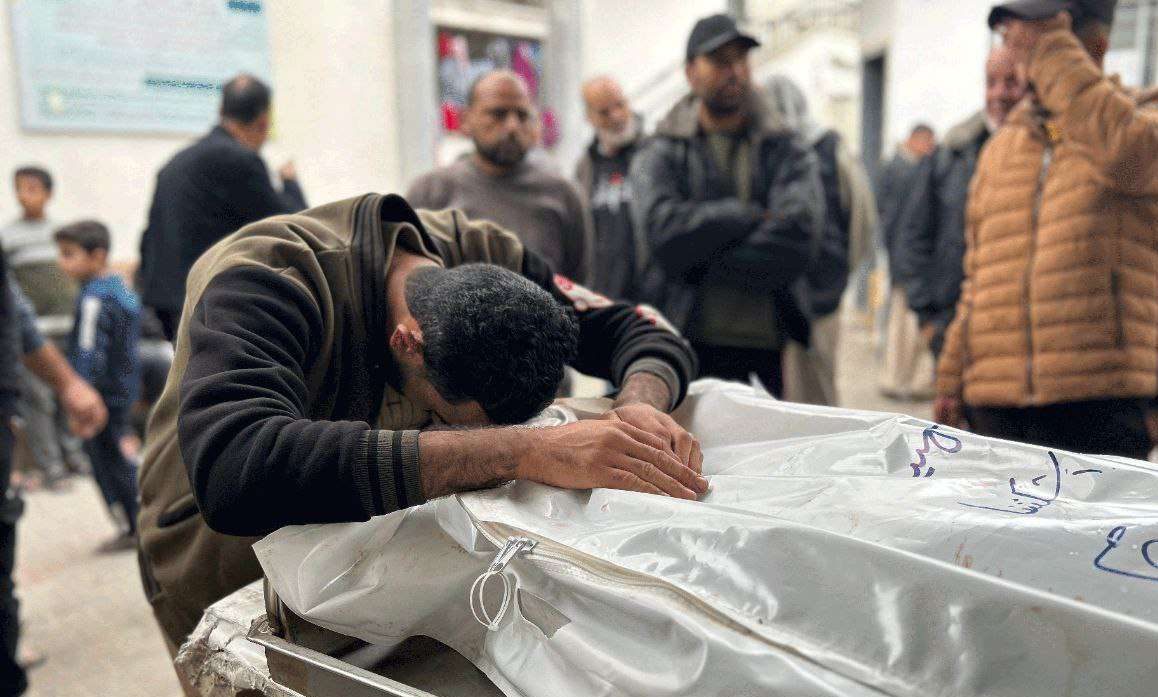UNICEF has reported nearly 20,000 births since the widespread Israeli genocide in Gaza, which has killed nearly 25,000 people.
Newborns are being “delivered into hell,” warns UN humanitarian agencies, amid the devastating conditions faced by mothers and infants under relentless Israeli bombardment.
UNICEF has reported nearly 20,000 births since the widespread Israeli genocide in Gaza, which has so far killed at least 24,927 people and injured over 62,388.
“Mothers face unimaginable challenges in accessing adequate medical care, nutrition and protection before, during and after giving birth,” said UNICEF Communications Specialist Tess Ingram.
“Becoming a mother should be a time for celebration. In Gaza, it’s another child delivered into hell.”
The unfolding genocide in Gaza has given rise to chronic aid access problems, leading to harsh situations like Caesarean sections being performed without anaesthetic and overwhelmed medical staff unable to assist in the delivery of stillborn babies.
Urgent international calls for a ceasefire have been reiterated by UNICEF, pushing for the need to address the ever-escalating humanitarian crisis brought on by the Israeli occupation.
Meanwhile, the World Health Organization (WHO) Director-General Tedros Adhanom Ghebreyesus warned of confirmed hepatitis A infections in Gaza, attributing it to inhumane living conditions, lack of clean water, toilets, and poor hygiene.
“The inhumane living conditions – barely any clean water, clean toilets and possibility to keep the surroundings clean – will enable hepatitis A to spread further and highlight how explosively dangerous the environment is for the spread of disease,” Tedros tweeted on X on Thursday.
“The capacity to diagnose diseases remains extremely limited. There is no functioning laboratory. The capacity to respond remains limited too.”
On average, 500 people share one toilet, and over 2,000 people rely on a single shower, significantly leading to the increase in the risk of disease transmission, WHO’s data revealed.
The harsh conditions in Gaza have led to a sharp surge in upper respiratory infections and a staggering 26-fold increase in diarrhoea cases among children under the age of five during the last three months of 2023 compared to the same period in 2022, according to the UN health agency.
“People are being pushed into ever smaller places; they’re in overcrowded shelters with lack of access to clean water, lack of access to toilets,” said Jasarevic.
“A large chunk of the population in Gaza – people who are injured and bombarded – need immediate medical help,” the WHO official said, noting that the emergency department of Nasser Medical Complex in Khan Younis now has just two doctors, a significant drop from the pre-war number of 24.
There are only 14 intensive care beds available, down from the pre-war count of 45, and merely four nurses out of the initial 20 are currently on duty.







